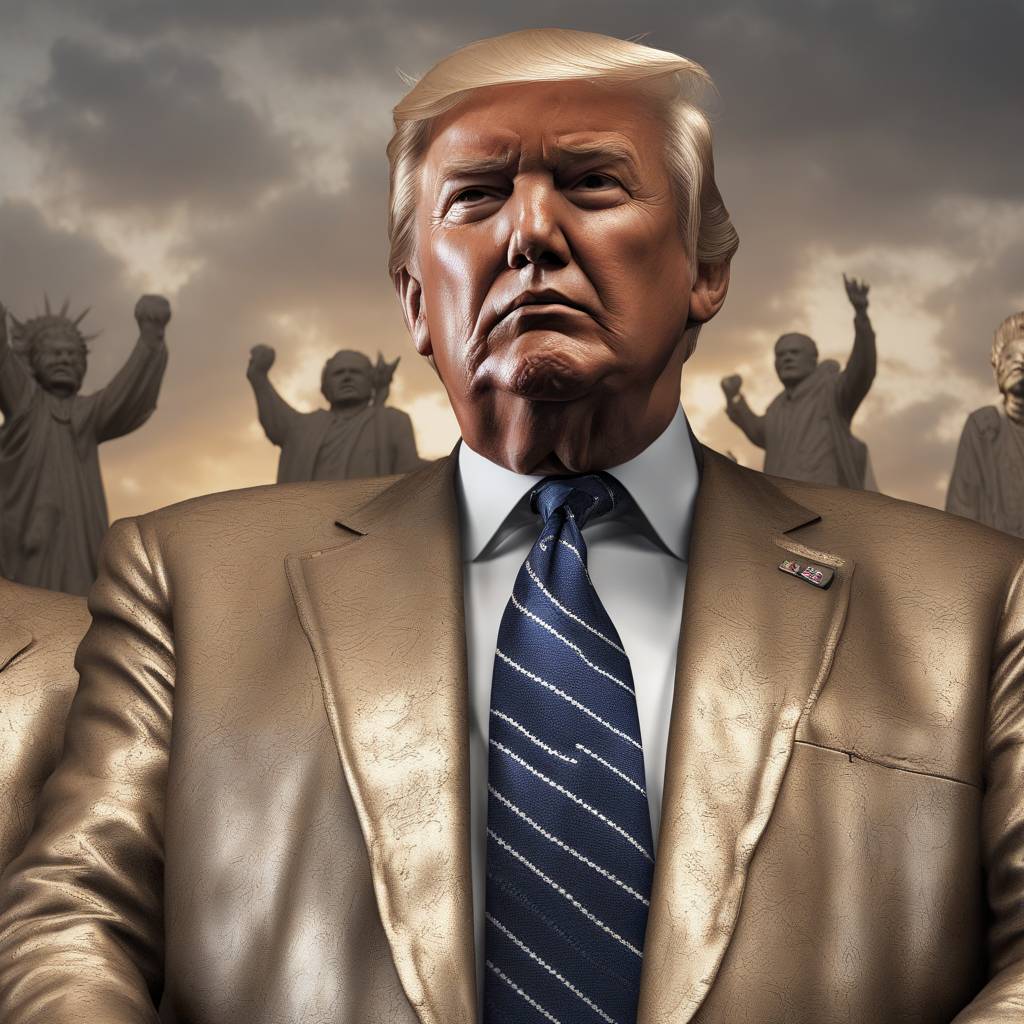In a recent statement, the former president referenced the late South African leader while criticizing the judge who will preside over his upcoming hush money trial. The former president attempted to draw parallels between his own legal troubles and the struggles faced by Nelson Mandela during his time in prison. By name-dropping Mandela in this context, the former president sought to portray himself as a victim of injustice and persecution, much like the revered South African leader. This comparison has drawn criticism from many who view it as inappropriate and disrespectful to Mandela’s legacy.
The former president’s decision to invoke Nelson Mandela in the context of his hush money trial has sparked controversy and debate. Many have criticized this move as an attempt to deflect attention from his own legal troubles and to garner sympathy by aligning himself with a revered figure like Mandela. Some have even gone so far as to accuse the former president of exploiting Mandela to further his own agenda. This controversy has fueled further skepticism and scrutiny of the former president’s actions and motivations.
Despite the controversy surrounding his reference to Nelson Mandela, the former president has continued to defend his actions and rhetoric. He has emphasized the importance of drawing attention to the perceived injustices he faces in his hush money trial and has doubled down on his comparison to Mandela’s struggles. The former president’s insistence on this comparison has only served to deepen the divide between his supporters and detractors, with many criticizing his tactics as divisive and manipulative.
The former president’s reference to Nelson Mandela in the context of his hush money trial has highlighted the complexities of public perception and the power dynamics at play in such high-profile legal cases. By attempting to align himself with a universally respected figure like Mandela, the former president has sought to sway public opinion and shape the narrative surrounding his legal troubles. However, this move has backfired for many, who see it as a cynical and opportunistic ploy to distract from the serious charges he faces.
In the midst of this controversy, it is important to remember the legacy of Nelson Mandela and the values he stood for. Mandela was a symbol of courage, integrity, and reconciliation, and his memory should not be exploited for personal gain or political advantage. By invoking Mandela in the context of his hush money trial, the former president has risked tarnishing the legacy of a great leader and undermining the principles he fought for. It is crucial for the public to remain vigilant and critical of attempts to co-opt Mandela’s image for personal gain.
In conclusion, the former president’s reference to Nelson Mandela in the context of his hush money trial has sparked intense debate and criticism. By invoking the late South African leader, the former president sought to cast himself as a victim of injustice and persecution, but in doing so, he has drawn ire for exploiting Mandela’s legacy for his own gain. This controversy serves as a reminder of the complexities of public perception and the power dynamics at play in high-profile legal cases. It also underscores the importance of upholding the values and principles that figures like Mandela embodied, and vigilance against attempts to distort or manipulate their legacies for personal advantage.








